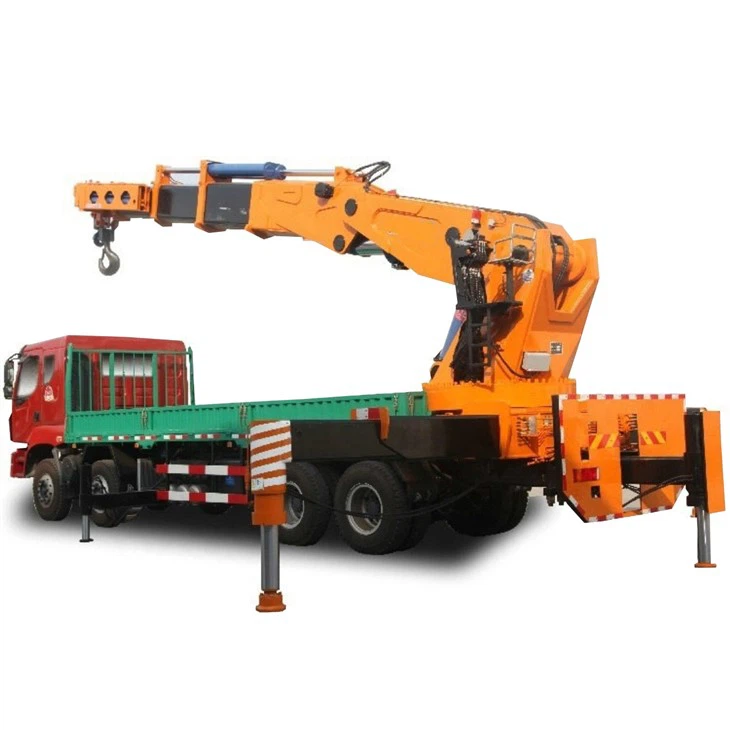Understanding Dumpster Hauler Trucks: The Backbone of Waste Management

In today’s world, efficient waste management is crucial, and dumpster hauler trucks play a significant role in this sector. These trucks are essential for transporting waste and debris from construction sites, residential areas, and various businesses to disposal facilities. In this comprehensive article, we will explore what dumpster hauler trucks are, how they operate, the various types available, and valuable tips for choosing and using them effectively.
What is a Dumpster Hauler Truck?
A dumpster hauler truck is specially designed to transport garbage containers known as dumpsters. They are equipped with hydraulic systems that allow them to lift and dump the waste from dumpsters into the truck’s bed for disposal. These trucks are an essential part of the waste disposal industry, ensuring that waste is efficiently collected and transported.
Key Features of Dumpster Hauler Trucks
Dumpster hauler trucks come with various features that enhance their efficiency and usability. Here are some key features:
- Hydraulic Lifting Mechanism: This allows for easy lifting and dumping of dumpsters.
- Heavy-Duty Chassis: Designed to carry heavy loads of waste materials.
- Various Sizes: Available in different sizes to accommodate various dumpster capacities.
- Durable Construction: Built to withstand tough conditions and heavy use.
Types of Dumpster Hauler Trucks
Dumpster hauler trucks come in several types, each suited for specific applications. Understanding these types can help you select the right one for your needs.
1. Rear-Loader Trucks
Rear-loader trucks feature a loading mechanism at the back, which allows for easy access to dumpsters placed on the street. They are ideal for urban environments and typically have a compact design, making them suitable for tight spaces.
2. Front-Loader Trucks
Front-loader trucks are equipped with a front lifting mechanism that allows them to pick up dumpsters from the front. They are better suited for commercial and industrial applications where larger volumes of waste are produced.

3. Side-Loader Trucks
Side-loader trucks utilize a mechanical arm to lift dumpsters from the side. This design helps minimize the amount of space needed for collection, making them useful in densely populated areas.
4. Roll-Off Trucks

Roll-off trucks are specifically designed to transport roll-off containers, which are larger dumpsters that can be loaded and unloaded with ease. These trucks are commonly used in construction and demolition scenarios due to their ability to handle substantial waste volumes.
How Dumpster Hauler Trucks Operate
The operation of dumpster hauler trucks involves several key steps:
1. Pickup
The truck approaches the location where the dumpster is situated. Depending on the type of truck, it will use its designated lifting mechanism to grasp the dumpster securely.
2. Lifting
Once secured, the hydraulic system lifts the dumpster to dump the contents into the truck bed. This process ensures minimal spillage and efficient collection of waste.
3. Transport

After loading, the driver transports the waste to a designated disposal facility. This could be a landfill, recycling center, or waste treatment plant.
4. Unloading
Upon arrival, the truck backs up to the unloading area, where it uses the hydraulic system to dump the waste out of the truck and into the designated disposal area.
Choosing the Right Dumpster Hauler Truck
Selecting the right dumpster hauler truck is crucial for effective waste management. Here are several factors to consider:
1. Type of Waste
Identify the type of waste you will be transporting. Different trucks are better equipped for different types of waste, such as construction debris, household trash, or recyclable materials.
2. Volume of Waste
Assess the volume of waste you expect to collect. This will help determine the necessary size of the dumpster and the truck needed.
3. Terrain
Consider the terrain where the truck will be operating. If working in urban areas with narrow streets, a compact truck might be more effective.
4. Budget
Establish a budget for your dumpster hauler truck investment. Trucks come in various price ranges, and it’s essential to choose one that fits within your financial plan.
Best Practices for Operating Dumpster Hauler Trucks
To ensure the efficient and safe operation of dumpster hauler trucks, consider the following best practices:
1. Regular Maintenance
Conduct regular inspections and maintenance on the truck to prevent breakdowns and extend its lifespan.
2. Training for Drivers
Ensure that all drivers are adequately trained on the operation of the truck and safety protocols to reduce the risk of accidents and injuries.
3. Planning Routes
Efficiently plan routes to minimize travel time and fuel consumption. This can greatly reduce operational costs.
4. Follow Regulations
Comply with local regulations regarding waste disposal to avoid fines and ensure environmental safety.
Practical Examples of Dumpster Hauler Trucks in Use
Construction Sites
On construction sites, roll-off trucks are often used to transport heavy debris, such as concrete, metal, and wood. For example, a large construction project may require multiple roll-off containers that can be easily replaced as they fill up.
Residential Areas
In residential projects, such as home renovations, side-loader or rear-loader trucks may be utilized to efficiently collect yard waste, old furniture, and renovation debris.
Commercial Properties
For commercial applications, front-loader trucks are frequently utilized to manage waste in restaurants, retail outlets, and offices, where waste needs to be collected regularly.
The Environmental Impact of Dumpster Hauler Trucks
Waste Management and Recycling
Dumpster hauler trucks are instrumental in waste management and recycling efforts. Efficient waste collection helps direct materials to recycling facilities, reducing landfill waste significantly.
Fuel Consumption and Emissions
While dumpster hauler trucks are vital for waste collection, their fuel consumption and emissions are essential considerations. Advances in truck technology, including hybrid and electric models, are helping to reduce their environmental impact.
Cost Considerations for Dumpster Hauler Trucks
| Type of Truck | Average Cost | Typical Use |
|---|---|---|
| Rear-Loader | $80,000 – $120,000 | Urban waste collection |
| Front-Loader | $100,000 – $150,000 | Commercial waste management |
| Side-Loader | $85,000 – $130,000 | Densely populated areas |
| Roll-Off | $90,000 – $140,000 | Construction and demolition |
Frequently Asked Questions (FAQ)
1. What is the capacity of a typical dumpster hauler truck?
Typically, a dumpster hauler truck can carry between 10 to 30 tons of waste, depending on its size and design.
2. How often should dumpster hauler trucks be serviced?
It is advisable to service dumpster hauler trucks every 6 months or after specific mileage or operational hours, whichever comes first.
3. Are there environmentally friendly dumpster hauler trucks?
Yes, there are hybrid and electric dumpster hauler trucks available that reduce fuel consumption and emissions significantly.
4. Can dumpster hauler trucks operate in residential areas?
Yes, many types of dumpster hauler trucks, such as rear-loaders and side-loaders, are designed to operate efficiently in residential neighborhoods.
5. What type of waste can dumpster hauler trucks transport?
Dumpster hauler trucks can transport various waste types, including construction debris, household waste, yard waste, and recyclable materials.
6. How do I choose the right dumpster size for my project?
Consider the types of waste you’ll be collecting and the estimated volume to select an appropriate dumpster size. Consulting with a waste disposal service can also provide guidance.
